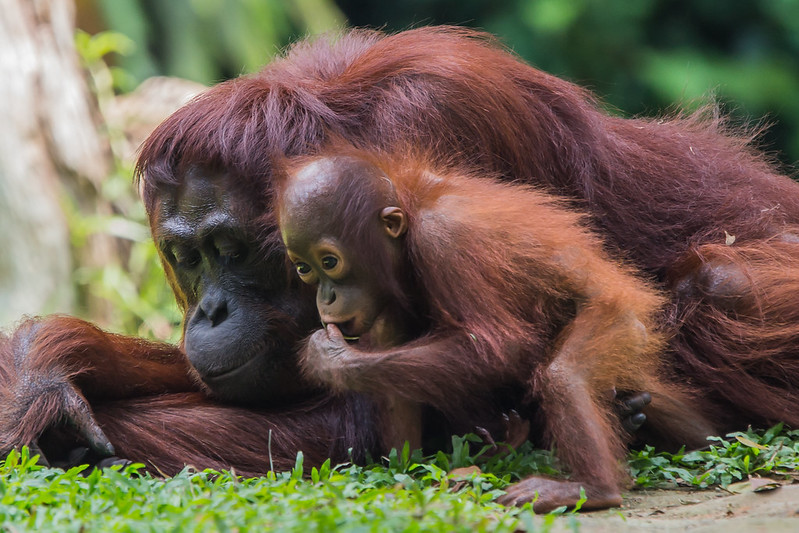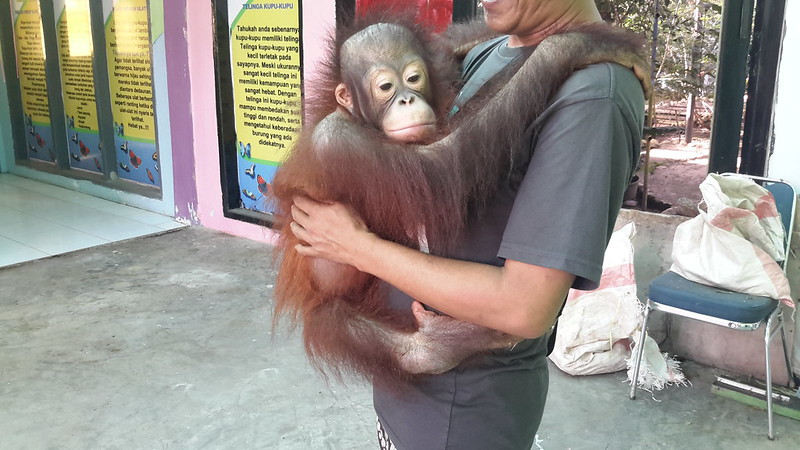#InternationalOrangutanDay: When taken away from their incredible single mothers, orangutan young become problem children
17 August 2018
The orangutan mother-child bond is so strong that those removed from their mother too young become maladjusted adults – we must learn from our mistakes.
We all know of the importance of the relationship between a parent and their infant for the child’s long-term wellbeing. But now we know the situation is extremely similar for orangutans too.
The critically endangered primates rear their young as single mothers. The mother and child will be inseparable for six to eight years with some individuals known to visit their mothers until they are 15 or 16.
During these pivotal years the child will learn where to find food, what and how to eat, how to avoid predators, and the technique for building a sleeping nest.
But mothers also provide comfort and vital social skills. Primatologists have observed that stress and disease can lead to unusual maternal behaviours, such as reduced frequency of licking, grooming and nursing, which can all contribute to altered neurological development of the infant.
It is therefore crucial that orangutans in captivity are provided a stress-free environment which allows them to behave as they would naturally in the wild.
Pivotal to this natural arrangement is for the offspring to remain with their mother for a natural period to ensure they have the best chance of developing both physiologically and psychologically.
Sadly, there are many cases of orangutans and other social animals being removed from their mothers at an inappropriate age, to be sold as pets or to be used as a prop for holiday photographs.
Individuals who grow up without a mother influence often go on to become socially maladjusted adults and are likely to become difficult to integrate in a group or lack the skills for normal behaviour.
When females are reared in isolation from a mother-figure, their maternal instincts can also be affected.
They are likely to be less attentive to their future offspring, while the act of separation also has a devastating impact on the mother whose baby is snatched.
Humans are increasingly realising that orangutans – like many other primates – are extremely similar to us. They raise their young with the same amount of love and care as we raise our own children, and in doing so they help them to develop into well-adjusted young adults with the skills needed to succeed within their environment.
No orangutan should be brought up in captivity, but if they are, we must realise the importance of the mother-child bond to their wellbeing. Their experiences as an infant will shape their character for their entire lives and we must do all we can to prevent this most vital of childhood bonds from being broken for all orangutans – both wild and captive.
BACK





